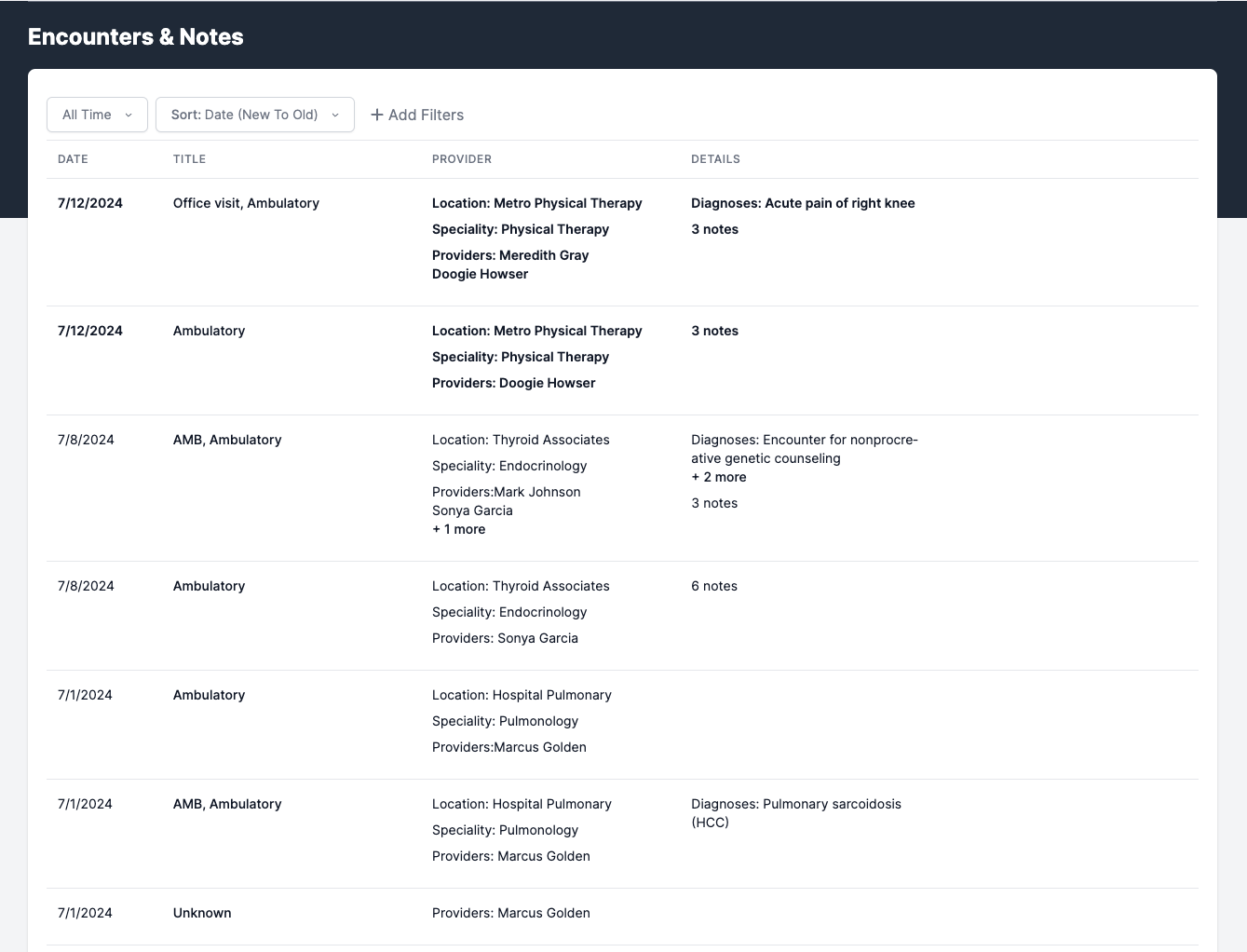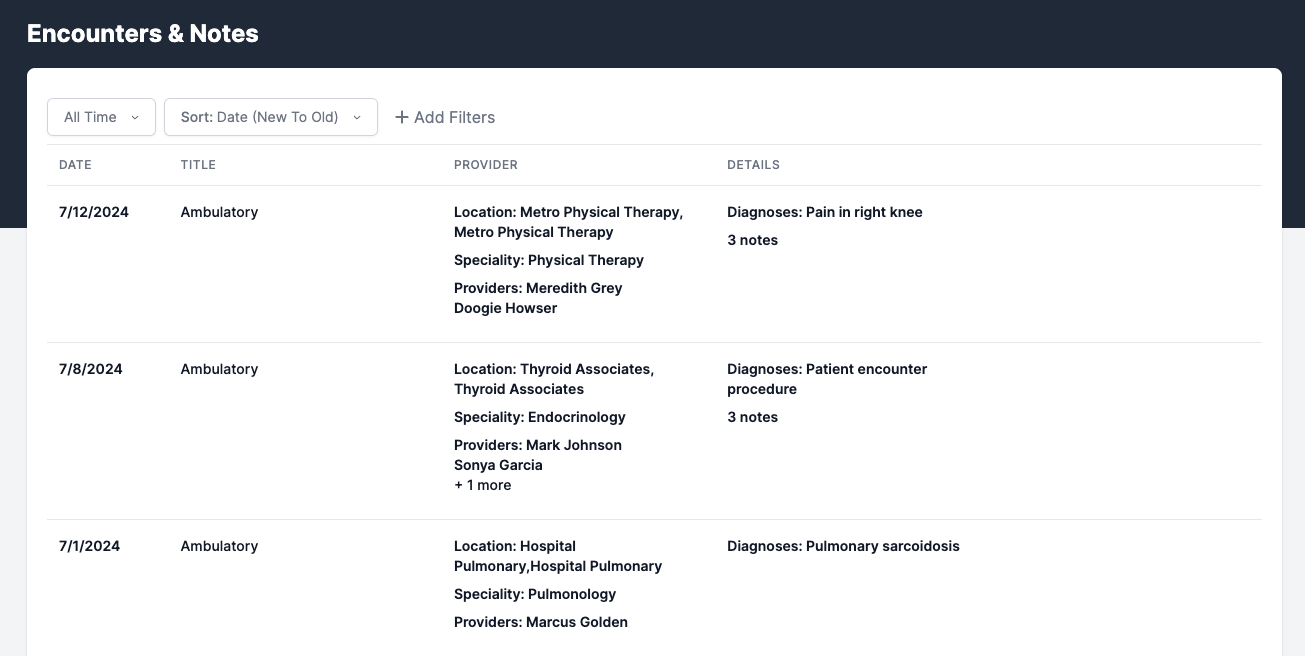Coming July 18: New Encounter Lens cleans and normalizes encounter data
We are thrilled to announce our latest Lens for Encounter data. This new Encounter Lens ensures that all encounters are cleaned, deduplicated, and normalized.
Key Benefits
- Improved Encounter Data Quality: Automatically cleans and normalizes encounter data, ensuring accuracy and consistency.
- Enhanced Efficiency: Reduces the time and effort required to manage and process encounter data.
- Seamless Integration: Works seamlessly within the ZAP and via API*, enhancing your data management workflows without requiring manual intervention.
Description
The Encounter Lens operates in the background, applying Zus technology and knowledge to clean, deduplicate, and normalize encounter data including the type of encounter, date, time, diagnoses, and more. This ensures that all encounter data you work with is accurate, consistent, and ready for use.
Important Note on Data Reduction
With the introduction of the Encounter Lens, you may notice a significant reduction in the number of rows of data. This is a result of our deduplication and normalization processes, which consolidate duplicate and redundant data entries. This reduction improves data quality and usability, ensuring you work with the most relevant information.
The Lens produces an 85% reduction in encounter volume per patient for clinical users wanting to make sense of what happened, and helps them find information important to care delivery faster.
The Encounter Lens deduplications takes this:

And transforms it into this:

Setup/Configuration
The Encounter Lens is automatically available in the Encounters component of the ZAP. We expect the Encounter Lens data to be available in Zus data marts by the end of the month, and will publish a separate release note when they are available.
Note
Some Hospital Encounters come to Zus incorrectly coded as Ambulatory encounters. You may notice an encounter that spans several days labeled as “Ambulatory” for this reason. We are working to implement a data enrichment that will correctly categorize these encounters as inpatient, and plan to make this improvement available in the coming weeks.
*Lens data will be available via API, but not yet in data marts.
